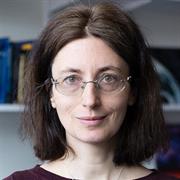Graduate Programs
The Department of Physics and Astronomy offers both master's and doctoral programs with a full range of graduate-level courses and research opportunities in astronomy, biophysics, condensed matter physics, cosmology, elementary particle physics, and quantum information. In addition to a Physics track and an Astrophysics track, the department offers a Chemical Physics track and a Physics Education track. Our students also pursue research in related departments, such as biomedical engineering, electrical engineering, and mathematics.
The members of our faculty have international reputations in a broad range of subjects, and collaborations between department members and members of other departments with differing research interests are common. Close interaction between faculty and students is the norm.
Last, but not least, Tufts and its close proximity to Boston offers incredible opportunities for cultural, gastronomical, and extra-curricular activities. See what some of our alumni have to say about their experiences!
Programs
MS in Physics
Summary of course requirements for students completing the stand-alone primary MS in Physics.
MS in Physics: Astrophysics
Learn about the requirements for the MS in Physics: Astrophysics, and possible courses of study.
MS in Physics: Physics Education
Learn about the requirements for the MS in Physics: Physics Education, and possible courses of study.
PhD in Physics
Learn about the requirements for the PhD in Physics, and possible courses of study.
PhD in Physics: Astrophysics
Learn about the requirements for the PhD in Physics: Astrophysics, and possible courses of study.
PhD in Physics: Physics Education
Learn about the requirements for the PhD in Physics: Physics Education, and possible courses of study.
PhD in Physics: Chemical Physics
Learn about the requirements for the PhD in Physics: Chemical Physics, and possible courses of study.
Joint PhD in Physics and Materials Science and Engineering
Learn about the requirements for the Joint PhD in Physics and Materials Science and Engineering.
Graduate Student Fellowships
Burlingame Physics Fellowship
The Burlingame Physics Fellowship was established by Mr. John F. Burlingame, A43 in 2005. The fellowship is awarded to physics students completing research toward their doctoral degrees.
Kathryn A. McCarthy Graduate Fellowship in Physics
The Fellowship is named for former Tufts Provost and Professor emerita of Physics Kathryn A. McCarthy, who was a devoted mentor to many graduate students and a pioneer in the entry of women into physics. The Fellowship is awarded to a female physics student pursuing research towards a doctoral degree.
Admissions
Please visit our admissions website for comprehensive information on our admissions processes and requirements, deadlines, financial and merit aid options, forms and instructions.
Graduate Admissions Tuition and Aid Request Information Departmental Admissions Info
